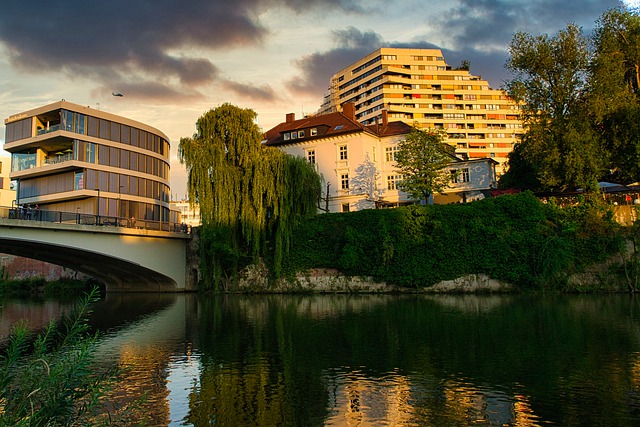Real estate investing often comes down to one big question: residential or commercial space?
Investing in the real estate sector has the prime motive, return in the form of rental income. But this is where people get into a fix and probably get held up confused, is commercial investment better or is residential investment better? We understand, for this is actually a topic which is not fair to draw conclusions upon recklessly. You need to be sure every aspect is correct and then go for the rightful one.
Meanwhile, both commercial and residential properties have their pros and cons, Opines Hirav Shah, Real Estate Investment Adviser and Noted Real Estate Strategist Cum Astrologer .
So, should one buy a residential property or a commercial one?
Basically, deciding between commercial real estate vs. residential real estate investing is not a decision that can be made overnight. Each strategy offers its own set of benefits as well as its own set of challenges. The path an investor chooses to take, will depend on their goals, risk tolerance, liquid capital, and time.
On that note, Hirav Shah Throws Some Light On Commercial Vs Residential Real Estate Investing.
Table of Contents
1. Residential Properties Are A “Sentimental” Acquisition
Comparing commercial and residential real estate is like comparing apples and oranges. Investing in commercial estate is a numbers game based on ROI, while residential is based on how a property ”feels” and is nowhere near as cut-and-dried. Residential purchases are typically a long-term personal and emotional investment based on the fact that a house feels right — ROI is irrelevant.
2.Commercial And Residential Properties Are Valued Differently
In general, the biggest difference between commercial and residential real estate investing is the way the property types are valued. Residential properties are nearly always valued based on comparison to similar residential properties, while commercial real estate is valued on the income from an investment perspective, which requires an understanding of different industry standards and financials.
3. Commercial Real Estate Is A Team Sport
Residential: See five houses Saturday, make three offers, accepted contract Monday.
Commercial: Trusted team of brokers, lenders and underwriters work together. Brokers find deals and underwriters evaluate which properties to make offers on. They may underwrite 100 properties before finding one to submit an offer on. The seller evaluates offers and picks the winning firm, and price is only one factor.
4.Residential Properties Are Subject To The Whims Of The Owner

Real estate is real estate. Size of transactions may be one differentiator, but there are $300 million single-family homes and extremely cheap commercial assets, so even that’s a wash. The real difference is the use case. In residential assets, the whims of a single owner can impact sales, rents and the pricing of an asset dramatically. Commercial use properties are, for the most part, just a utility.
5.Commercial Real Estate Yields Higher Income, But Residential Properties Are Easier To Finance

Commercial properties typically have longer lease agreements and higher rental income opportunities. However, residential real estate tends to be less complicated. Financing for residential properties is much easier, while commercial properties tend to be more expensive and require more capital upfront.
6.Commercial Real Estate Requires Diligent Documentation And Income Data

If you’re flipping a house, the buyer doesn’t care about the growth or reliability of your property’s income stream. For commercial real estate investments, you’ll need to show exceptional returns for potential buyers when you decide to sell. Diligent record-keeping of income, expenses and performance is crucial in a commercial investment.
Know The Basics Of Real Estate and Educate Yourself Further, Suggests Hirav Shah.
The Top Variances to Know When Comparing Commercial & Residential Real Estate

Now, Hirav Shah Explains The Fundamental Differences Between Commercial & Residential Real Estate below.
1.Residential real estate is all single-family homes and one to four-unit rental residences.
In contrast, commercial property is anything with five or more units. Condos, duplexes, and quadruplexes make-up residential real estate, while office, retail, industrial, multifamily (of five units or more), hotel, and special purpose buildings are considered commercial real estate.
2.Another stark difference between commercial and residential properties is in the type of tenant each building attracts.
Residential properties are typically leased to families and individuals, while commercial properties are leased to businesses.
3.Lastly, each property type comes with a different set of opportunities. Commercial real estate tends to award investors a much wider range of potential investment. For example, there are more commercial property investment funds than residential ones.
On the other hand, residential real estate investing tends to give investors a more active role in the property.
4. A residential real estate investment performs better during an Economic Crisis. The biggest testimony to this was 2020 only.
Businesses are often the first to experience the costs of an economic downturn, which can affect commercial investors in a few ways. First, commercial property owners hoping to attract tenants while the economy is in decline may find marketing the property to be particularly challenging. Residential real estate is by no means immune to these challenges; however, as a whole, residential property owners will benefit from the fact that housing is always in demand (despite the state of the economy). There is also no guarantee a company will stay in business for the duration of a commercial lease. This can present a unique challenge for commercial investors counting on long term tenants.
Conclusion
Both residential and commercial investing take knowledge and experience. Although commercial real estate is often viewed as more complex, they both require extensive due diligence by the participating investor before diving in.
Investing in Real Estate is like a purpose to serve, not a lifestyle to live. It is the purpose of your life, your well-being and your happiness.
Hence, don’t rush.
Think, plan, calculate, map out & strategize…Concludes Hirav Shah.














